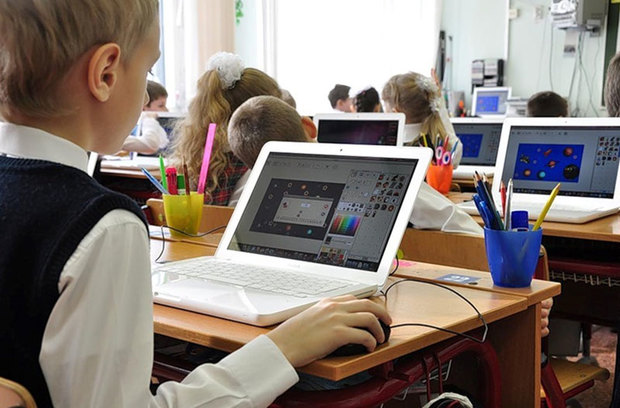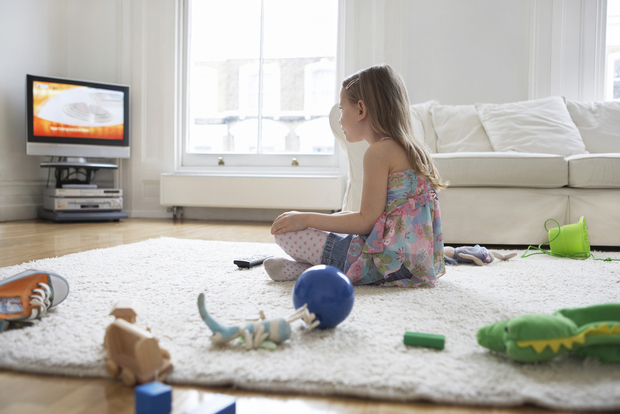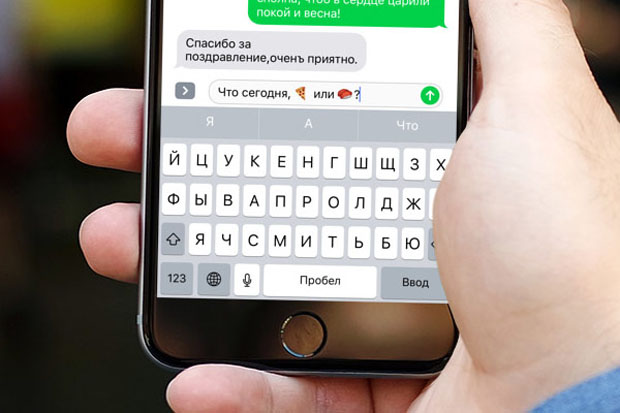Ilya Utekhin: ''We are cyborgs, but a kid is a cyborg with big possibilities''
In an interview with Realnoe Vremya, Russian sociologist, historian of culture, professor of the Faculty of Anthropology of the European University at St. Petersburg Ilya Utekhin told about the changing way of modern life of Russians, why small apartments – ''Shuvalovka''- were better than Soviet communal apartments and how social networks dissolve in the digital generation.
''Are you saying that there is no physical space for books in these ''Shuvalovka'' apartments?''
Mr Utekhin, you are famous for your book about communal life. What do you think about small apartments – ''Shuvalovka'' (Editor's Note: named after First Deputy Prime Minister of Russia Igor Shuvalov who told it was ridiculous that people bought 20 square metre apartments)?
My statements about modern small apartments are an opinion of an ordinary person, not an expert in the field. My ethnographic work was dedicated to small houses in the city centre of an especial city – Petersburg. Why did big communal apartments turn out there? Initially, a considerable part of the housing fund consisted of houses that were rich people's mansions or apartment blocks with big apartments to lease to wealthy people. It is a peculiarity of the housing fund of Petersburg and Moscow. What was interesting there? It was not even defined by the tightness and the size. Tightness remained at the end of the Soviet era. But it was not as awful as it was in the 50s. People who are not relatives but have to use one toilet, bathroom, kitchen and come across lived in one space, it is the most important thing. In other words, they lived like one family. At the same time, they had to ensure the function of the space, define the contribution of each member and how everybody uses it. These are human relations created in everyday life. It was the major and most interesting part of the research.
Small apartments don't frighten me. They allow a big number of house managements to appear and enable many people to have a separate life from their parents. Are you saying that there is no physical space for books in these ''Shuvalovka'' apartments? People have different hierarchy of values. If a book plays a big role in somebody's life even where there is little space, first of all, the apartment will have books. I have seen amazing dwellings where not everything was put in order but books reigned: piled on the floor. Comfort was not important for such a person.

''Small apartments don't frighten me. They allow a big number of house managements to appear and enable many people to have a separate life from their parents.'' Photo: prav.tatar.ru
However, now everything is becoming simpler. Many people read e-books. It means that thousands of books can be kept in a USB drive, PC. Another thing is that residential complexes are erected far from the centre, in bedroom districts. It is a kind of ghetto for people. A bookshop and different cultural events are what people live in the city for and why their life is different from a village. It turns out that the cultural life is far from the people who live in the suburbs, and their doors are closed: one has to be stuck in the bus to go to a theatre or museum. It is the problem, not the size of a dwelling.
You said that people are switching to e-books. People don't imagine themselves without gadgets and computers. What do you think about the fact that people are spending more and more time in the virtual world?
There are two points of views on all such issues. One of them is normative. It is an ordinary aborigine's point of view. The aborigine doesn't know that everything is different in other places. The norm changes. It changes in history, in different societies. Based on our culture, we think that the majority of norms seems to be unshakable. For example, nobody will eat an insect because it is disgusting. Meanwhile, different caterpillars, grasshoppers are eaten in some cultures. It is a normative point of view. If people pronounce a word incorrectly, we tell them off – they are so illiterate! We are witnessing all these changes. Ordinary people estimate events on the basis of a normative point of view. Another point of view is objective: there are different cultures, each of them has its own norms. It is neither bad nor good. It is what we have. As researchers, we find it interesting to explain why people behave this way and support such opinions.
If only those people who behave ''correctly'' survived, human society would have no reason to accumulate information in a culture. All societies would be identical like different kinds of one type of animals. Nature is responsible for transmission of information from generation to generation biologically. But the evolution of a human being stopped being biological a long time ago. It is cultural. The more difficult a society became, the more information was accumulated. People's difference from animals is that they can accumulate information.
People were different from animals from the very beginning because they used different tools and used them in their activity – from simple technologies like a tipped cane to writing and calculation. Computer among them is not just a tap but a more complicated and important thing because it connects people now.

''Technologies, in itself, have no guilt. But parents, school and society should control the behaviour of a potential rat, so that the behaviour won't create harmful habits.'' Photo: tellur.spb.ru
''New technologies open opportunities of new habits''
As a worldwide web, the Internet appeared in 1991. But it became widespread only in 2001. More and more new generation kids communicate on the Internet. Is it good?
Teachers in school and parents, of course, have many questions whether they should limit the use of gadgets by their kids. Having a big deal of temptations, people have a chance to behave like a rat that was taught to press a lever when the action sends an impulse to the pleasure centre of its brain. And rat can't stop. Is there really any danger? Why do we have alcoholism and other harmful habits? Indeed, new technologies open opportunities of new habits. But it is not a cause to ban. If people have normal relations with social networks and normal life, they won't drink too much alcohol even if they have it at home. The same thing happens with computers. But it means that parents should conscientiously treat their obligation as a parent and don't substitute a human communication inside the family, which is important for a kid's socialisation, for gadget screens.
Communication on the Internet is often the only possibility for many people, for example, those who don't have physical possibilities to talk live. A person who is confined to a wheelchair, can't visit other people and go everywhere. The Internet is the only way to communicate. It is an opportunity to enter the big world.
Technologies, in itself, have no guilt. But parents, school and society should control the behaviour of a potential rat, so that the behaviour won't create harmful habits.
But I would like to tell about the benefit of computer technologies and training games. They allow a kid and an adult to experience the most dramatic situations and make decisions without fear. It is a big advantage.

''If you give an iPhone to a three-year-old kid, the kid will talk to it. It's fine. It is much more dangerous if you leave the kid with a TV on.'' Photo: uaua.info
''Technologies dissolve in the environment and become unclear''
The diagnosis computer addiction among kids is not a rare thing. How should parents find out in time that their kids don't study and are already ''sick'' and stop them? How to set the limit?
Addiction to computer games is a problem when a kid doesn't study but simply plays for 90% of the time. And it becomes a longer process. Parents should not charge gadgets with their obligations. If you give an iPhone to a three-year-old kid, the kid will talk to it. It's fine. It is much more dangerous if you leave the kid with a TV on. A habit of such non-interactive flow of brainwashing media information in the background can create serious problems connected with attention (a kid will find it difficult to focus on something, especially in school) and communication with other people.
Is AI a threat for humankind?
It is the next stage of humankind's evolution linked with new threats and problems. It is like any invention that can be used to the good and bad.
Have scientists ever had to study the influence of the Internet on people's psyche?
Much time spent with gadgets and especially games do have an impact. And this impact is not only negative. Communication with a technology requires new skills and habits. Finding necessary information from an environment where it is dissolved or unclear is one of the required skills today. Such tasks when one has to highlight parts in a text, which is about a hero's attitude towards somebody. These are unusual exercises. They did not exist in the primary school 10-15 years ago. An ability to find important things from a text and do it quickly is a skill of ''digital aborigines''. If you started to use gadgets when you were a kid, it is easier for you to complete such tasks. Children born when the Internet existed react faster and can get the idea of the information on the page quicker and highlight the most important moments. It is a speed of reaction. It is one of that psychological cognitive style that prepares a habit to use the Internet as a source of information.
So it is true that the Internet and habit of reality simulation in its different kinds generates specific psychological features.
''In a live communication, we see a face expression, emotions, posture, gestures''
How does it affect a person? Do they change a person from a psychological perspective?
What does ''change'' mean? We consider a gadget as a continuance of a person, a kind of human organ that expands people's abilities. And the ''prosthesis'' can be more or less comfortable: there are more problems on the border between person and technology for older people, which is not integrated, while it has no stitches for young people. A kid doesn't notice this stitch. We are cyborgs, but a kid is a cyborg with big possibilities because artificial things for us are natural for them.

''Initially, this communication is limited than a live one. It makes emotions primitive and can limit an ability to understand emotional reactions of other people in life properly.'' Photo: macdigger.ru
Communication technologies changed our world of communication in comparison with the situation when we talked face to face or wrote letters. In a live communication, we see a face expression, emotions, posture, gestures. When you write something, you don't reflect it, you don't transmit your intonations, only to some extent. Different kinds of expression of emotions and attitude are appearing on the Internet. Initially, this communication is limited than a live one. It makes emotions primitive and can limit the ability to understand emotional reactions of other people in life properly.